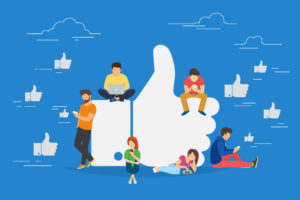Greek mythology tells the story of a handsome young man named Narcissus who was pursued by the beautiful nymph Echo. Rejecting her advances he accidentally spots his mirrored image in a pool of water. He falls in love with it. “Unable to consummate his love, he lay by the poolside gazing at his image,” eventually “turning into the flower narcissus.”
Who does that sound like? Millennials? People who were born between 1980-2000, and know nothing else about technology other than social media.
Millennials take more photos of themselves than any other generation in history, including kings and dictators.
On psychological inventories, Millennials score higher on the scale of narcissism than any other previous generation.
Millennials are in love with themselves. They have fallen in love with their own image. Will they, like Narcissus, turn into flowers?
Because the Millennials have now come of age, the term narcissism has become a frequently used word in everyday language. It’s synonymous with words like vanity, selfishness, egotism, and hubris (pride).
If you don’t like someone, these days you are more than likely going to call him or her a narcissist. Not that many know what the term means, it’s just that’s it’s the cool thing to say about someone you want to criticize.
But like everything else in language the term will wear thin and eventually fade into the background, just like the oft used word “racist” did in the 1960’s.
But back to the issue, are Millennials narcissists?
To answer that, let’s take a closer look at the word and bear down on its several usages in the field of psychology.
Type 1 Narcissism
Most scholars agree that narcissism is a natural part of an individual’s development. We know it as a healthy sense of self worth.
When one has a healthy amount of self worth, a person has developed a good internal self regulator. The person knows how to preserve self interest while having empathy and personal connection with others.
Type 2 Narcissism
Where narcissism becomes a personal problem is when an individual has developed insecurities during his or her formative years. One of the ways to mask insecurity is by inflating one’s sense of self importance. Some of the words that are used to describe this kind of person are self centered, selfish, arrogant.
A narcissist of this type seeks approval. He or she is overly sensitive about being criticized, and needs praise to salve feelings of inadequacy. If praise is not forthcoming, friendships often become brittle.
Type 3 Narcissism
Narcissism becomes a psychological illness when a person becomes a sociopath. This occurs when a narcissist has little if any empathy for other people. A sociopath sees people as objects to manipulate, abuse, and take advantage of. Psychological studies call this a state of not having a conscience.
A sociopath can be charming and overly solicitous. The origins of this illness can be genetic as well as developmental.
Cultural Narcissists
I don’t believe Millennials in general fit any of the types described above. Those are individual classifications. They’re not relevant for describing group characteristics. Hence, I will create one for Millennials. They are “cultural narcissists.”
Typical examples of cultural narcissism are obvious. In high school, cliques are formed based on “popularity” and physical attributes. In religion, teachings are based on exclusivity. The more unique and special the members feel, the more they exclude “outsiders.”
As a group Millennials have their own unique brand of cultural narcissism. Millennials have been brought up by baby boomer parents. With boomer parents, millennial children were raised to feel good about themselves. Self image was all important. For example millennial children would get a ribbon even if they lost a race or contest. In the millennial world no one loses, everyone wins. This is different than other generations that were not raised on the idea that a positive self image had to be maintained at all cost.
Add to this the advent of social media. Millennials were the first generation to fully embrace social media in mass. With that the cult of celebrity became a passion for Millennials. On social media everyone becomes a celebrity. Facebook and YouTube become the stages to show themselves off.
In addition Millennials tweet directly with rock stars, movie stars, super elite athletes, as well as anyone else who wants to open a Twitter account. By association with celebrities, Millennials become celebrities in their own minds.
Indeed, at a minimum Millennials are cultural narcissists.
Do I believe this kind of millennial narcissism is detrimental to human progress?
That’s harder to answer. But in general I don’t believe so.
I’ve always been suspicious of social critiques, especially when an older generation is commenting on a younger generation. For example my parents’ generation, sometimes referred to as The Greatest Generation, was extremely critical of my generation, The Baby Boom Generation.
My parents’ generation felt my generation had fallen off the cliff because of our disrespect and rebellion, and our experiments with drugs, sex and rock n roll. In actuality most kids didn’t participate to any great extent in those activities. And even if they did, most settled down and focused on succeeding in business and the professions after a while.
Most all generations turn out about the same. In the end we all end up paying the bills, going to work, and contributing to the stability of our communities.
As for the Millennials being cultural narcissists, over time the tag will fade, especially when social media drenches every generation in every part of the world.
And In part I believe the purposes of a free society are accomplished by what the Millennials are experiencing. Millennials have direct access to power through social media, and in the process have empowered themselves.
You want people power? You’ve got it. For what is democracy if not a focus on each individual and his or her personal freedoms and liberties? Millennials are free if they are anything.
